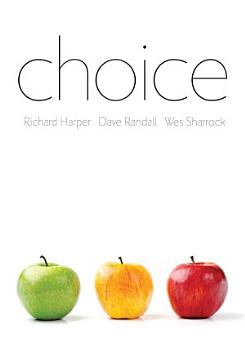Choice
এই ইবুকখনৰ বিষয়ে
So are we in a position to make better choices today than we were a decade ago? Certainly there are some who believe so. Psychologists claim we are subject to hidden mental processes that lead us to one thing rather than another; economists offer predictions about what people will buy; and some philosophers claim that our choices echo our evolutionary past.
Are these claims merited? Do they reflect the beginnings of a new science of choice? This book offers a critical overview of these and other claims, showing where they are justified and where they are exaggerated. It will be an essential reference for anyone interested in whether science can help us to understand both the ways people make choices in their everyday lives and how these may be changing.
লিখকৰ বিষয়ে
Richard Harper is Principal Scientist at Social Shaping Research, Cambridge
Dave Randall is Senior Professor, University of Siegen, Germany
Wes Sharrock is Professor at Manchester University





